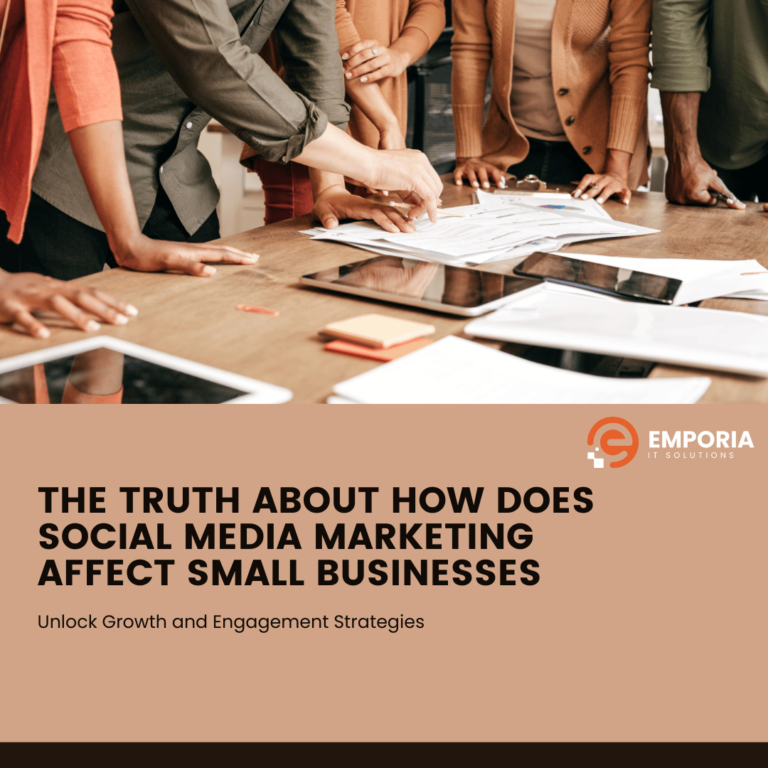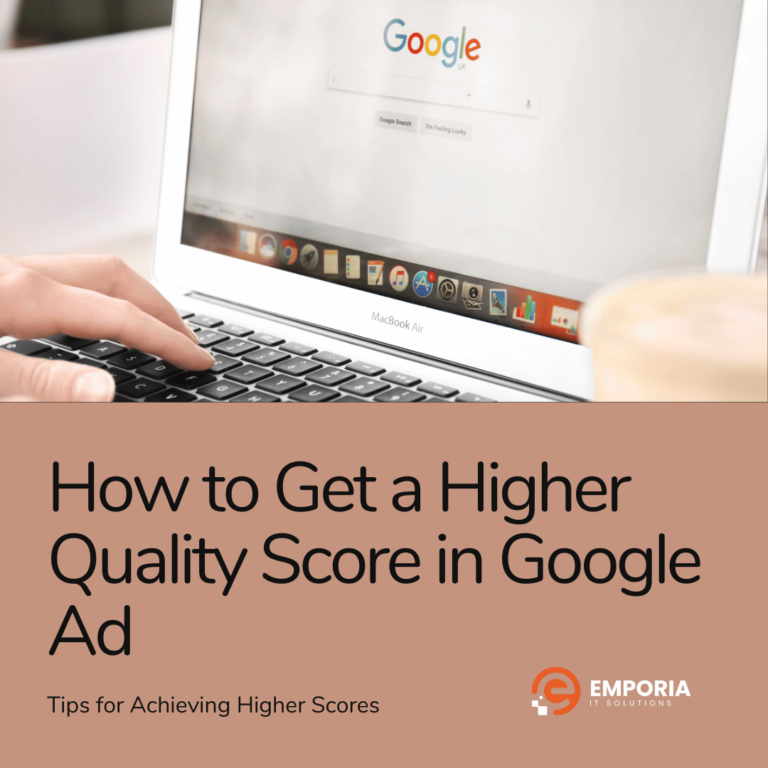Search Engine Optimization Tips
In the ever-evolving digital marketing landscape, the synergy between social media and search engine optimization (SEO) has become increasingly significant. As we move into 2024, understanding and leveraging this relationship is crucial for businesses aiming to enhance their online presence. This blog will explore the essential search engine optimization tips, focusing on how integrating social media strategies can lead to better SEO outcomes.
Social Media and SEO
Social media and powerful SEO are two tools in the digital marketing arsenal. While they operate differently, their integration can lead to substantial benefits. Social media platforms like Facebook, Twitter, and Instagram are not just for social interaction; they are also valuable channels for driving traffic, increasing brand visibility, and enhancing engagement.
When these platforms are used strategically, they can significantly boost your SEO efforts
In 2024, the digital landscape is more competitive than ever. Integrating social media strategies into your SEO efforts is no longer optional; it’s essential. Social media can amplify your content, increase your reach, and drive more organic traffic to your website.
Eemporia is a leading digital marketing agency based in Sweden, specializing in helping businesses harness the power of social media marketing. With a team of experienced professionals, Emporia offers tailored strategies to enhance brand visibility, engage with customers, and drive business growth. By leveraging the latest tools and techniques, Emporia ensures that businesses can maximize the benefits of social media marketing and achieve their marketing goals.
Understanding Social Media SEO
Social Media SEO refers to the practice of optimizing your social media profiles and content to improve your visibility in search engine results. This involves using relevant keywords, creating high-quality content, and engaging with your audience.
Social media SEO is crucial because it helps your content get discovered by a broader audience, both on social platforms and search engines.
How Social Media Impacts SEO
While social media signals are not direct ranking factors for search engines like Google, they have several indirect benefits that can enhance your SEO efforts:
1. Increased Brand Visibility: Social media platforms can help you reach a larger audience, increasing the chances of your content being discovered and shared.
2. Enhanced Engagement: Engaging content on social media can drive more traffic to your website, leading to higher search engine rankings.
3. Backlink Generation: High-quality content that performs well on social media is more likely to be linked to by other websites, generating valuable backlinks.
4. Improved Brand Authority: Consistent and valuable social media activity can establish your brand as an authority in your industry, which can positively impact your SEO.
Creating Shareable Content
High-Quality Content
Creating high-quality content is the cornerstone of any powerful SEO strategy. Engaging and shareable content not only attracts more visitors but also encourages them to interact with your brand, leading to increased visibility and higher search engine rankings. It should address their pain points, answer their questions, and provide solutions to their problems. This type of content is more likely to be shared across social media platforms, amplifying your reach and driving more traffic to your website.
Visual Content
Visual content is a powerful tool for boosting engagement and making your content more shareable. Images, videos, and infographics can capture the attention of your audience and convey complex information in an easily digestible format. According to HubSpot, articles with relevant images receive 94% more views than those without. Videos are particularly effective, as they can increase the time users spend on your site and improve your search engine rankings. Infographics, on the other hand, are highly shareable and can help you gain backlinks from other websites.
Leveraging Social Signals
Engagement Metrics
Social signals, such as likes, shares, and comments, can indirectly boost your SEO by increasing your content’s visibility and credibility. While social signals are not direct ranking factors for search engines like Google, they can lead to increased traffic, higher engagement, and more backlinks, all of which can positively impact your search engine rankings. For example, a piece of content that receives a high number of shares on social media is more likely to be seen by a larger audience, increasing the chances of it being linked to other websites.
Encouraging Interaction
Encouraging audience interaction and engagement is essential for leveraging social signals to boost your SEO. Here are some strategies to achieve this:
1. Ask Questions: Encourage your audience to share their thoughts and opinions by asking open-ended questions in your posts.
2. Create Polls and Surveys: Use polls and surveys to engage your audience and gather valuable feedback.
3. Host Contests and Giveaways: Organize contests and giveaways to incentivize your audience to interact with your content.
4. Respond to Comments: Engage with your audience by responding to their comments and fostering a sense of community.
Utilizing Hashtags and Keywords
Hashtag Strategy
Hashtags are a powerful tool for increasing the discoverability of your content on social media platforms. By categorizing your posts with relevant hashtags, you make it easier for users to find your content when they search for specific topics. Here are some strategies for effective hashtag use:
1. Research Popular Hashtags: Use tools like Hashtagify or the built-in search functions on social media platforms to identify popular and trending hashtags related to your content.
2. Mix Popular and Niche Hashtags: Combine widely used hashtags with more specific, niche ones to reach a broader audience while also targeting a more engaged, specific group.
3. Create Branded Hashtags: Develop unique hashtags for your brand or campaigns to encourage user-generated content and increase brand visibility.
4. Limit the Number of Hashtags: While Instagram allows up to 30 hashtags per post, studies suggest that using 5-10 relevant hashtags is optimal for engagement.
Keyword Integration
Keywords are just as important on social media as they are on your website. By incorporating relevant keywords into your social media posts and profiles, you can improve your visibility in both social media and search engine results. Here are some tips for effective keyword integration:
- Optimize Your Bio and Profile: Include relevant keywords in your social media bio and profile descriptions to help users find your account when searching for those terms.
- Use Keywords in Posts: Integrate keywords naturally into your social media posts to improve their discoverability. This includes captions, alt text for images, and video descriptions.
- Leverage Keyword Tools: Use keyword research tools like Google Keyword Planner or Ahrefs to identify high-performing keywords that you can incorporate into your social media strategy.
Building Backlinks through Social Media
Content Promotion
Promoting your blog posts and website content on social media is an effective way to generate backlinks, which are crucial for improving your search engine rankings. Here are some strategies for promoting content on social media:
1. Share Regularly: Consistently share your blog posts and website content on your social media channels to keep your audience engaged and drive traffic to your site.
2. Use Engaging Visuals: Accompany your posts with eye-catching images, videos, or infographics to increase engagement and shares.
3. Encourage Sharing: Ask your followers to share your content with their networks, which can help you reach a wider audience and generate more backlinks.
Influencer Collaborations
Partnering with Influencers to Reach a Wider Audience and Gain Backlinks
Collaborating with influencers can significantly boost your best SEO optimization efforts by increasing your content’s reach and generating high-quality backlinks. Here are some tips for successful influencer collaborations:
1. Identify Relevant Influencers: Look for influencers in your industry who have a strong following and align with your brand values.
2. Build Relationships: Engage with influencers by commenting on their posts, sharing their content, and reaching out to them with personalized messages.
3. Create Valuable Content: Work with influencers to create content that is valuable to their audience and encourages them to link back to your website.
Monitoring and Analyzing Performance
Social Media Analytics
Monitoring and analyzing your social media performance is crucial for understanding how your efforts are impacting your SEO. By using analytics tools, you can track key performance indicators (KPIs) such as engagement rates, reach, and conversions. These metrics provide valuable insights into what is working and what needs improvement.
1. Google Analytics: This tool allows you to track traffic from social media to your website, helping you understand which platforms are driving the most traffic and conversions.
2. Hootsuite Analytics: Offers detailed reports on your social media performance, including engagement metrics and audience growth.
3. Sprout Social: Provides comprehensive analytics on social media performance, helping you track KPIs and measure the ROI of your social media campaigns.
4. SEMrush: This tool not only tracks your social media performance but also integrates with your SEO efforts, providing a holistic view of your digital marketing strategy.
By regularly monitoring these metrics, you can gain insights into user behavior.
Adjusting Strategies
Once you have gathered data from your analytics tools, the next step is to adjust your social media strategies based on this performance data. Here are steps to help you make adjustments:
- Analyze Engagement Trends: Look for patterns in your engagement metrics to understand what type of content resonates most with your audience. For example, if videos are getting more engagement than images, consider creating more video content.
- Benchmark Against Competitors: Use benchmarking features to compare your performance against competitors and identify areas where you can improve. This can help you understand industry standards and set realistic goals.
- Prioritize Platforms: Focus your efforts on the platforms that are driving the most traffic and engagement. If Instagram is performing better than Twitter, allocate more resources to Instagram.
- Set New Goals: Use the insights gained from your performance data to set new, achievable goals for your social media strategy. This ensures that your efforts are aligned with your overall business objectives.
In conclusion, leveraging social media for the best SEO optimization involves a multifaceted approach that includes creating shareable content, utilizing hashtags and keywords, building backlinks, and continuously monitoring and analyzing performance. By integrating these strategies, you can enhance your online presence, drive more organic traffic, and improve your search engine rankings.
A holistic approach to how to SEO website and social media is essential for staying competitive in the digital landscape of 2024. Implementing these tips can help you achieve better results and maximize the impact of your digital marketing efforts.
At Eemporia, we specialize in helping businesses unlock the full potential of their online presence through data-driven social media marketing strategies. Whether you want to increase brand visibility, engage with your audience, or boost sales, our team of experts will create a tailored approach that meets your business goals. With a decade of experience in delivering real results, we transform your social media platforms into powerful tools for growth.
Ready to take your SEO strategies to the next level? Contact us today for professional SEO and social media management services tailored to your business needs.
FAQs
1. How does social media usage enhance SEO efforts?
Social media usage enhances SEO efforts indirectly by increasing brand visibility, driving traffic to your website, and generating backlinks
2. How can you optimize your title and description for SEO purposes?
To optimize your title and description for SEO purposes, follow these best practices:
- Include Keywords: Use relevant keywords at the beginning of your title and description to improve visibility.
- Keep It Concise: Titles should be between 50-60 characters, and descriptions should be around 150-160 characters to avoid truncation.
- Make It Engaging: Write compelling titles and descriptions that encourage users to click through to your site.
3. How does search engine optimization work?
Search engine optimization (SEO) works by optimizing your website’s content, structure, and technical aspects to make it more attractive to search engines. This involves keyword research, creating high-quality content, improving user experience, and earning backlinks.
4. Which one of the following is the most important for SEO?
While many factors contribute to SEO, content quality is often considered the most important. High-quality, relevant content that meets user intent can significantly improve your search engine rankings. Other crucial factors include keyword research, user experience, and backlinks.
5. Does search engine optimization require money?
SEO can be done for free, but investing in tools and professional services can enhance your efforts. Free methods include optimizing your content, building backlinks, and using free analytics tools. However, paid tools and services can provide more in-depth insights and faster results.








